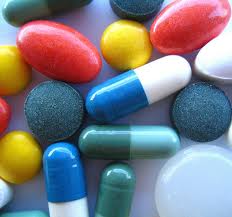 A trial led by Carla Greenbaum, MD, Diabetes Research Program director at Benaroya Research Institute (BRI) at Virginia Mason and sponsored by the Immune Tolerance Network (ITN) and funded by the National Institutes of Health shows a new break in reversing autoimmunity in Type 1 diabetes.
A trial led by Carla Greenbaum, MD, Diabetes Research Program director at Benaroya Research Institute (BRI) at Virginia Mason and sponsored by the Immune Tolerance Network (ITN) and funded by the National Institutes of Health shows a new break in reversing autoimmunity in Type 1 diabetes.
The trial involved a two-pronged approach; two drugs were administered as a combination. The first drug in the combination interferes with the immune response that ultimately causes type 1 diabetes. The second drug boosts the part of the immune response that regulates overactive immune cells.
There are over one million people in the United States that have type 1 diabetes and that number is growing every year. With type 1 diabetes, the body’s immune system begins to attack and destroy insulin-producing cells that are in the pancreas which are referred to beta cells. When diagnosed with type 1 diabetes there are still a number of beta cells that are active in the body. Because these beta cells are natural insulin producers and can decrease over the long-term effects of diabetes, there are many therapies that are needed for the cure of diabetes.
The two drugs Proleukin (IL-2) and Rapamune (sirolimus) were administered to patients to find out whether or not the drugs would affect the immune system and halt the autoimmune destruction of the remaining beta cells. The researchers of a study describe a flourishing boost of regulatory components of the immune system also were prolonged that were not expected. Due to the temporary impairment of the beta cell function that was lead by the researchers, they concluded that the drug combination was not having a desired effect. Monitoring of the insulin production in the nine subjects indicated that the beta cell preservation goal was therefore not achieved and the study was then halted.
Dr. Greenbaum said, “This study result has been extremely important to scientists looking for ways to stop the immune attack. Our aim would be to harness the good effects of this therapy while preventing the bad effects.” Participants who haven’t yet completed the study will continue to be followed.”
Gerald Nepom, MD, PhD, Director of ITN said, “The clinical and mechanistic findings from this study can help guide future treatments that boost good immunity. This was an important clinical trial that will improve the design of subsequent trials to rescue beta cells in Type 1 diabetes.”